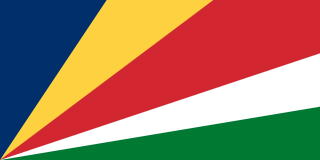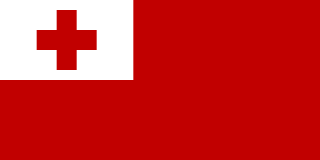
Parasports are sports played by people with a Physical disability, Some parasports are variations on existing able-bodied sports, while others such as goalball have been specifically created for persons with a disability and do not have an able-bodied equivalent. Disability exists in four categories: physical, mental, permanent and temporary. At a competitive level, disability sport classifications are applied to allow people of varying abilities to face similar opposition. The term "parasports" arose from a portmanteau of the words paraplegic and sports. Though the sport has since included athletes of disabilities other than paraplegia, the term persists as a catch-all. Other terms for the concept include adapted sports, adaptive sports, disability sports, and disabled sports. The term Paralympic sports is commonly used interchangeably with parasports, though technically this only refers to the event Paralympic Games which like the Olympics, run every four years, alternating between summer and winter every two years.

The Paralympic Games or Paralympics are a periodic series of international multi-sport events involving athletes with a range of disabilities, including impaired muscle power, impaired passive range of movement, limb deficiency, leg length difference, short stature, hypertonia, ataxia, athetosis, vision impairment and intellectual impairment. There are Winter and Summer Paralympic Games, which since the 1988 Summer Olympics in Seoul, South Korea, are held almost immediately following the respective Olympic Games. All Paralympic Games are governed by the International Paralympic Committee (IPC).

The 1980 Summer Paralympics, branded as the Olympics for the Disabled, were the sixth Summer Paralympic Games. They were held in Arnhem, Netherlands, from 21 to 30 June 1980.

A National Paralympic Committee (NPC) is a national constituent of the worldwide Paralympic movement. Subject to the controls of the International Paralympic Committee (IPC), NPCs are responsible for organizing their people's participation in the Paralympic Games.

The Paralympic sports comprise all the sports contested in the Summer and Winter Paralympic Games. As of 2016, the Summer Paralympics included 22 sports and 526 medal events, and the Winter Paralympics include 5 sports and disciplines and about 72 events. The number and kinds of events may change from one Paralympic Games to another.

The Seychelles made their Paralympic Games début at the 1992 Summer Paralympics in Barcelona, with just two representatives. Cyrl Charles competed in swimming, while Elvis Victor entered the shot put. Neither man won a medal, and the Seychelles have not competed at the Paralympics since.

Zimbabwe has been competing at the Paralympic Games since the country became independent in 1980; it had previously competed as Rhodesia. Zimbabwe was absent from the Games in 1988 and 1992, returning in 1996 with a two-man delegation, and has competed at every edition of the Summer Paralympics since then. It has never taken part in the Winter Paralympics.

Rhodesia was one of the participants at the inaugural Paralympic Games in 1960 in Rome, where one of its two representatives was Margaret Harriman, in swimming and archery. The country took part in every edition of the Summer Paralympics until 1972. Although Rhodesia was barred from all Olympics from 1968 until its disestablishment in 1979 after its 1965 Unilateral Declaration of Independence from the United Kingdom, it was allowed to participate in the 1968 Tel Aviv and 1972 Heidelberg games because politicians, both from Britain and the host nations of the games, were unwilling to sanction athletes with disabilities. However, the Canadian government refused to grant visas for the Rhodesian Paralympic team to attend the 1976 Toronto Paralympics.

Burkina Faso competed at the 2000 Summer Paralympics. They were represented by one male athlete.

Kenya competed at the 2000 Summer Paralympics. They were represented by 13 sportspeople, 5 women and 8 men, at the Sydney, Australia hosted Games. Kenyan Paralympians won four medals at these games, one gold, one silver and two bronze.

Nigeria competed at the 2000 Summer Paralympics, sending a 31-member strong delegation that won 13 medals, 7 of which were gold.

Kenya competed at the 2004 Summer Paralympics in Athens, Greece. Their delegation included 16 athletes, 8 men and 8 women, who won 3 golds, 1 silver and 3 bronze medals. Institutional problems inside Kenyan elite disability sport impact the country's performance at the Paralympic Games.

Morocco competed at the 2004 Summer Paralympics in Athens, Greece. The team included 10 athletes, 7 men and 3 women. Six members of the delegation, including three athletes, participated in a study about dental health during the Games.

Tonga participated in the 2012 Summer Paralympics in London, United Kingdom, from August 29 to September 9, 2012. Their participation marked their fourth consecutive Summer Paralympics appearance since their début at the 2000 Summer Paralympics in Sydney. Tonga was represented by the Tonga National Paralympic Committee, and was one of the 45 participating countries that sent only a single athlete. Tonga has always sent only a single athlete from Sydney 2000 to London 2012. Tonga National Paralympic Committee sent a delegation of three people, including one athlete. The sole athlete to represent the nation was ʻAloʻalo Liku, who participated in javelin and discus throw. Liku was the country's flag-bearer during the Games' opening ceremony. Tonga did not win a medal at these Games, however Liku finished with seasonal bests in both the events.

Kenya competed at the 1996 Summer Paralympics. The country sent a 17 strong athlete delegation to Atlanta, United States.
Disability sports in Australia is the component of sports in Australia encompasses disabled sports programs for Australians with a disability, including physical and intellectual disabilities, allowing for the full participation in society. As with abled-body sports, these programs include child development, rehabilitation, recreation and competition at all levels.

Kenya competed at the 2016 Summer Paralympics in Rio de Janeiro, Brazil, from 7 September to 18 September 2016.

Zimbabwe sent six athletes across two different sports to the 2016 Summer Paralympics in Rio de Janeiro, Brazil, from 7 September to 18 September 2016.
Disability affects many people living in Zimbabwe. Disability is defined as the inability to do any substantial gainful activity by reason of any medically determinable physical or mental impairment which can be expected to result in death or which has lasted or can be expected to last for a continuous period of not less than 12 months. Disabled people are one of the most marginalised, excluded and poorest groups in Zimbabwean society. People with disabilities in Zimbabwe are treated as second-class citizens. It is estimated about 900 000–1.4 million people have some sort of disability in Zimbabwe. Zimbabwe is a State Party to the Convention on the Rights of the Child (CRC) and the UN Convention on the Rights of Persons with Disabilities (UNCRPD).
The Belgian Paralympic Committee (BPC) is the umbrella organization in Belgium of organized sport for people with a disability. It acts as the Belgian National Paralympic Committee, making it the official Belgian representative to the European Paralympic Committee (EPC) and the International Paralympic Committee (IPC). The Belgian Paralympic Committee has two members, a Flemish league (Parantee-Psylos) and a French-speaking league for disabled sports.











